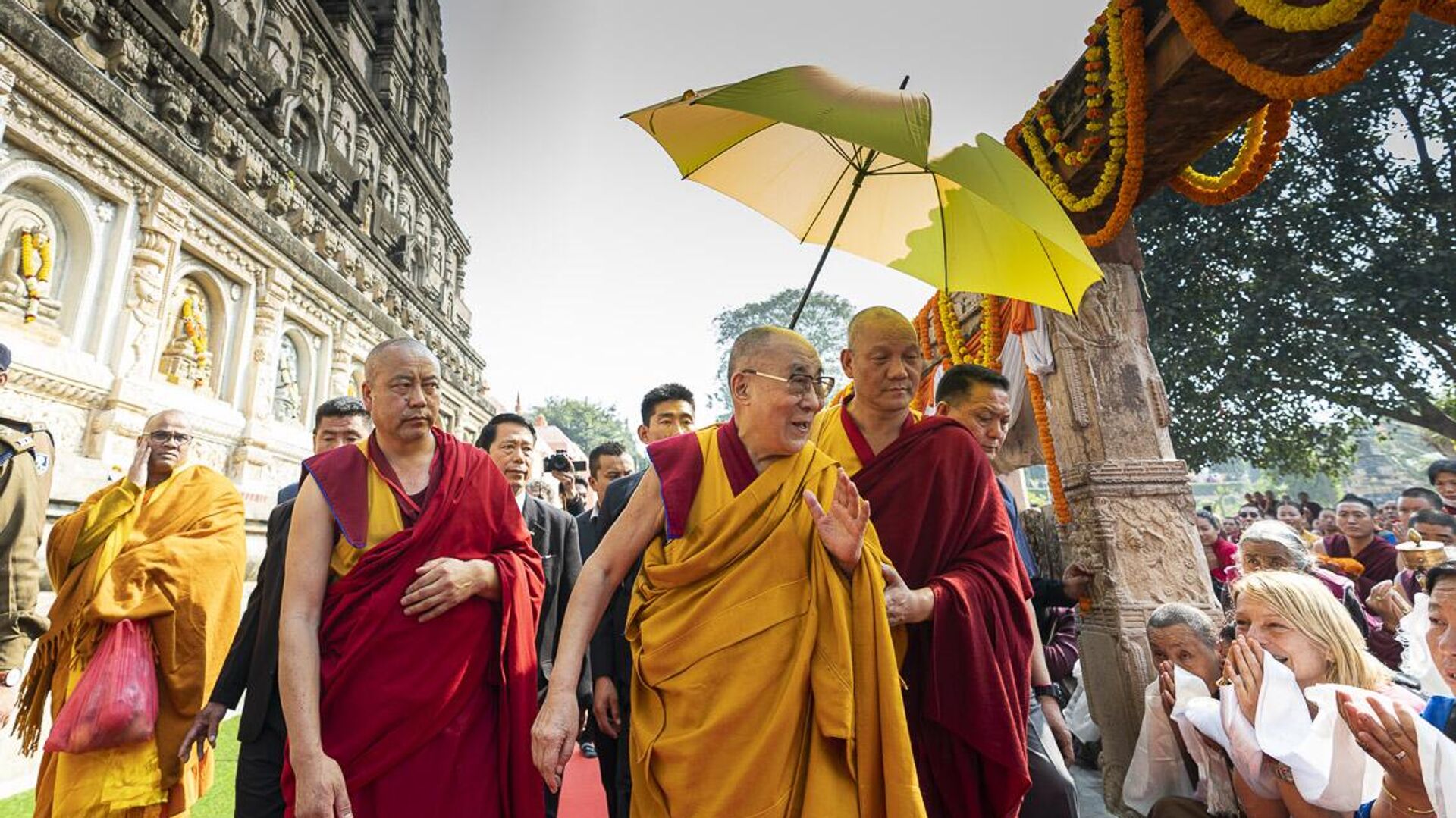https://sputniknews.in/20230109/tibetan-govt-in-exile-rejects-chinas-stance-on-dalai-lamas-succession-415961.html
Tibetan Gov't in Exile Rejects China's Stance on Dalai Lama's Succession
Tibetan Gov't in Exile Rejects China's Stance on Dalai Lama's Succession
Sputnik India
Chinese government asserts that the recognition of reincarnate Lamas, including the Dalai Lama, must follow Chinese law.
2023-01-09T12:01+0530
2023-01-09T12:01+0530
2023-01-09T12:01+0530
world news
india
the dalai lama
tibet
tibetan buddhism
china
https://cdn1.img.sputniknews.in/img/07e6/0c/1b/270335_0:106:1140:747_1920x0_80_0_0_de02ee5696310a6799fd3bf2cd8cd276.jpg
The Tibetan government in exile does not support the "historically and culturally inaccurate" stance of China regarding the succession of the Dalai Lama, Tenzin Lekshay, a top official with the Dharamshala-based Central Tibetan Administration said on Monday.The official, who is currently based in Dharamshala, a town in India's Himachal Pradesh state, emphasized that both the 13th and current 14th Dalai Lamas were chosen through Tibetan tradition.This comes after Zhu Weiqun, former head of the Ethnic and Religious Affairs Committee of the National Committee of the Chinese People's Political Consultative Conference, claimed that the Dalai Lama has been lying to deceive those unfamiliar with history and facts.Zhu argued that this demonstrates that the highest authority on the issue of the Dalai's succession lies with the Chinese government, rather than any individual.The reincarnation system for the living Buddhas has long been a traditional Tibetan Buddhist practice. However, Beijing has maintained that the reincarnation of the Dalai Lama should be approved by the Chinese government in the first place, based on both "historical rules" and modern Chinese laws.In accordance with this stance, the 2007 State Administration for Religious Affairs Regulation prohibited "any foreign organization or individual" from participating in the process of reincarnation selection.China has also enacted the New Regulations on Religious Affairs and the Rules on the Management of Reincarnation of Tibetan Living Buddhas in 2007 and 2018, respectively, to further codify its position on the matter.
india
tibet
china
Sputnik India
feedback.hindi@sputniknews.com
+74956456601
MIA „Rossiya Segodnya“
2023
News
en_IN
Sputnik India
feedback.hindi@sputniknews.com
+74956456601
MIA „Rossiya Segodnya“
Sputnik India
feedback.hindi@sputniknews.com
+74956456601
MIA „Rossiya Segodnya“
living budhhas, the 14th dalai lama, what are reasons for dispute over reincarnation of dalai lama, the headquarters of tibetan government in exile, succession of the dalai lama, dalai lama reincarnates, tibetan tradition of choosing dalai lama
living budhhas, the 14th dalai lama, what are reasons for dispute over reincarnation of dalai lama, the headquarters of tibetan government in exile, succession of the dalai lama, dalai lama reincarnates, tibetan tradition of choosing dalai lama
Tibetan Gov't in Exile Rejects China's Stance on Dalai Lama's Succession
Beijing has maintained that the recognition of the Dalai Lama's reincarnations should follow China's law.
The Tibetan government in exile does not support the "historically and culturally inaccurate" stance of China regarding the succession of the Dalai Lama, Tenzin Lekshay, a top official with the Dharamshala-based Central Tibetan Administration said on Monday.
The official, who is currently based in Dharamshala, a town in India's Himachal Pradesh state, emphasized that both the 13th and current 14th Dalai Lamas
were chosen through Tibetan tradition.
“To the most recent, the Great 13rd & the current 14th Dalai Lama are chosen through Tibetan tradition without China's approval,” Lekshay, spokesperson for the Central Tibetan Administration, added.
This comes after Zhu Weiqun, former head of the Ethnic and Religious Affairs Committee of the National Committee of the Chinese People's Political Consultative Conference, claimed that the Dalai Lama has been lying to deceive those unfamiliar with history and facts.
Zhu argued that this demonstrates that the highest authority on the issue of the Dalai's succession lies with the Chinese government, rather than any individual.
The reincarnation system for the living Buddhas has long been a traditional Tibetan Buddhist practice. However, Beijing has maintained that the reincarnation of the Dalai Lama should be approved by the Chinese government in the first place, based on both "historical rules" and modern Chinese laws.
In accordance with this stance, the 2007 State Administration for Religious Affairs Regulation prohibited "any foreign organization or individual" from participating in the process of reincarnation selection.
China has also enacted the New Regulations on Religious Affairs and the Rules on the Management of Reincarnation of Tibetan Living Buddhas in 2007 and 2018, respectively, to further codify its position on the matter.

